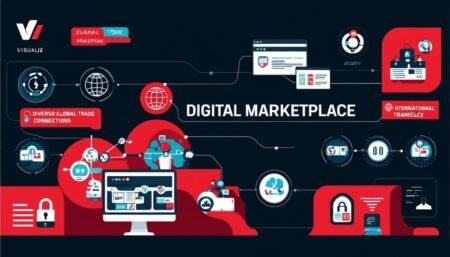Recent reports highlight how AI and other technologies are reshaping industries and driving economic growth, with a focus on investment in digital infrastructure.
Emerging technologies such as artificial intelligence (AI), fifth-generation mobile communications (5G), and cloud computing are reshaping various industries and impacting the way individuals and businesses operate. This transformation corresponds with the ongoing fourth industrial revolution, which focuses on the integration of advanced digital technologies into traditional manufacturing and business practices. The aim is to harness data, enhance interconnectivity, and improve analytics and automation, all towards achieving greater efficiency and profitability.
According to a recent report, worldwide investment in information and communication technology (ICT) soared to approximately US$4.9 trillion last year. This surge in funding aligns with findings in the Global Digitalization Index 2024, produced by Huawei Technologies alongside the International Data Corporation. This comprehensive analysis also incorporates insights from the World Economic Forum, which forecasts that digital technology and AI are expected to be pivotal in driving 70 per cent of global economic growth over the next five years.
In response to these developments, leaders and policymakers around the world are increasingly focused on establishing effective metrics to assess the returns on investments in digital infrastructure. They are tasked with evaluating the health of their ICT ecosystems and devising strategies aimed at broadening their digital scope.
The report’s scope includes an assessment of digital development across 77 countries, which collectively account for 93 per cent of the global gross domestic product (GDP) and 80 per cent of the world’s population. By quantifying the advancements in digitalisation, the report intends to offer insights into how digitalisation can contribute to broader economic prosperity.
As businesses across various sectors continue to leverage AI automation alongside other emerging technologies, the implications are significant, suggesting a preparation for a future where these digital advancements will play an increasingly central role in operational strategies and economic growth.
Source: Noah Wire Services
- https://www.venasolutions.com/blog/ai-statistics – This article supports the claim that AI is transforming businesses across various sectors, enhancing productivity, and driving innovation, which aligns with the broader impact of digital technologies on industries.
- https://www.pwc.com/us/en/tech-effect/ai-analytics/ai-predictions.html – This source discusses how AI, particularly generative AI, is fundamentally changing business operations, revenue growth, and everyday processes, reflecting the integration of advanced digital technologies.
- https://www.pwc.com/us/en/tech-effect/ai-analytics/ai-predictions.html – It highlights the importance of data modernization and the role of AI in transforming various business functions, which is crucial for assessing the returns on investments in digital infrastructure.
- https://www.commerce.nc.gov/news/the-lead-feed/what-industries-are-using-ai – This article provides sector-specific data on AI adoption, showing how different industries are leveraging AI, which corresponds to the assessment of digital development across various sectors.
- https://www.commerce.nc.gov/news/the-lead-feed/what-industries-are-using-ai – It discusses the future use of AI across different sectors, aligning with the forecast that digital technology and AI will drive significant economic growth.
- https://www.datarails.com/industries-impacted-by-ai/ – This source details how AI is impacting various industries such as healthcare, finance, and retail, highlighting the role of AI in enhancing operations and driving economic growth.
- https://www.datarails.com/industries-impacted-by-ai/ – It explains how AI is creating new job opportunities and transforming existing roles, which is relevant to the discussion on the economic impact of digital technologies.
- https://www.connect.comptia.org/blog/artificial-intelligence-statistics-facts – This article provides statistics on AI adoption and its impact on businesses, including the creation of new jobs and the enhancement of business operations, supporting the broader economic growth driven by digital technologies.
- https://www.connect.comptia.org/blog/artificial-intelligence-statistics-facts – It mentions the high demand for AI specialists and the significant economic disruption expected from AI, aligning with the forecast of digital technology’s impact on global economic growth.
- https://www.venasolutions.com/blog/ai-statistics – This source estimates the potential economic impact of AI, such as improving productivity growth and raising global GDP, which supports the idea that digital technologies will drive significant economic growth.
- https://www.pwc.com/us/en/tech-effect/ai-analytics/ai-predictions.html – It discusses the role of AI in making sense of unstructured data and accelerating data-related transformations, which is crucial for evaluating the health of ICT ecosystems and devising digital strategies.
















